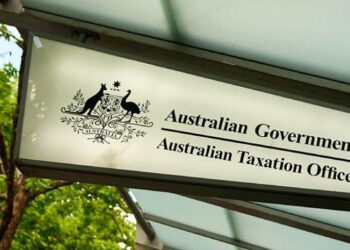The Australian Financial Complaints Authority (AFCA) has said in a recent webinar that it has seen an increase in the number of complaints regarding NOIs, many of which go to determination.
“There are a couple of reasons for this. Firstly, it’s a very technical area and sometimes complainants and their representatives are tripped up by the legislation, but it’s also a very time sensitive area, so if somebody misses the deadline, then the tax deduction can’t be assessed,” Anne Maree Howley, senior ombudsman, said.
Howley explained that the legislation for NOIs was often misunderstood, while on other occasions, clear information is lacking.
“Often what we see is that somebody does raise a question [about NOIs] and the response they receive is not accurate or it’s ambiguous, and then they take an action in filling out a form that leads to an invalid NOI and then they seek redress,” she said.
“We’re also seeing, however, that sometimes there are communication failures when people send back a form stating it is an invalid NOI.”
With AFCA expecting a continuous stream of NOI-type complaints, Howley noted that it might be appropriate for trustees to consider whether or not their communication meets expectations.
Heather Gray, lead ombudsman, superannuation, added that NOIs can be quite complicated for those unfamiliar with them.
“Some trustees I know have got business rules around it and what they may do if they receive an NOI. An example would be somebody’s trying to do the bring-forward with a non-concessional contribution, but they fill out the form and they tick ‘yes, I want to claim a tax deduction’,” she said.
“That’s almost certainly a mistake. I know some trustees, based on what we’ve seen, have got business rules that say if you see something like that, you need to ring that person and clarify. Sometimes the trustee has got those rules, but hasn’t followed them, and as a result, somebody’s ended up in the position where tax has been deducted from what they only ever intended to be a non-concessional contribution.”



Thanks AFCA for the helpful advice. The bigger issue, and one where you would hope any panel that reviews complaints would focus on, is the structural issues with the process. The fact that there are many missteps with the NOI, and some are clearly getting before AFCA, means there is something wrong with the process.
For a start, it is far too manual. It derived from the environment prior to the current largely digital age we now operate. And, the two components of the process are disconnected. That is, the superfund needs the member to identify the contribution as concessional and secondly, the personal tax return must include the deduction. 2 requirements that don’t intersect. Advocacy has seen the personal tax return include a warning at the label re the NOI process but this hasn’t “fool-proofed” the process.
The member needs to be able to communicate intent easily – such as when the contribution is made. It is no longer acceptable for APRA funds to keep blocking reforms in super due to their hard to change systems. Individuals have to compensate for the system inefficiencies and the cost is born by the taxpayer.
If nothing changes to facilitate better success rates with NOI then the member should be allowed to change contribution status post the October deadline that currently exists. If the APRA funds won’t improve their systems then, some of the re-work needs to go back on them.